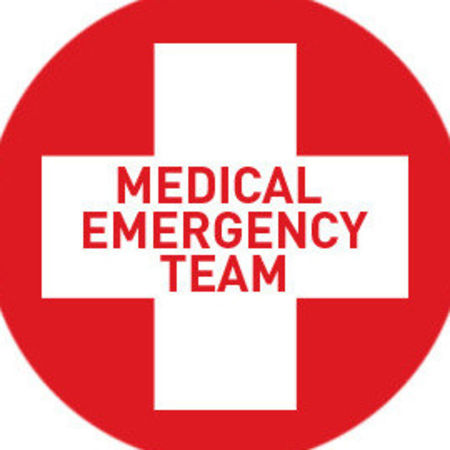What happened when one healthcare network in Melbourne, Australia implemented a general ward-based plan to improve rapid response system activation? Michael Buist, Centre for Health Services Research at the University of Tasmania and colleagues from Monash Health write about the results in an article recently published in Safety in Health.
The research was prompted by a number of incidents where patient harm resulted from failure to active the rapid response system (RRS). The researchers found that a ward-initiated multi-faceted intervention sustainably reduced the incidence of missed RRS team activations that could result in either unplanned ICU admission or cardiac arrest, while the number of RRS calls did not increase. The key to success? Giving ownership to each ward to devise their own criteria for when to call the medical emergency team. The intervention also included clear communication protocols about how to use the paging system and a revised education process for new staff.
The authors write: “A key finding is that the successful development of co-produced, practice-sensitive protocols for initiating RRS can improve outcomes of patients experiencing deterioration without additional RRS resources.”
See Also:Impact of Rapid Response Teams on ICU
The study’s limitations are whether all missed RRS calls are measured. The authors state, however, that what matters was that a culture existed on the wards to positively encourage RRS calls when patients were clearly deteriorating rather than that every RRS activation was made, as the positive and negative predictive value of the various activation criteria are low.
“By taking the problem to the actual staff on the ground to get them to solve their own problems with their own resources, we succeeded in our aim of the ward teams taking ownership of the problem of deteriorating patients”, they conclude.
The research was prompted by a number of incidents where patient harm resulted from failure to active the rapid response system (RRS). The researchers found that a ward-initiated multi-faceted intervention sustainably reduced the incidence of missed RRS team activations that could result in either unplanned ICU admission or cardiac arrest, while the number of RRS calls did not increase. The key to success? Giving ownership to each ward to devise their own criteria for when to call the medical emergency team. The intervention also included clear communication protocols about how to use the paging system and a revised education process for new staff.
The authors write: “A key finding is that the successful development of co-produced, practice-sensitive protocols for initiating RRS can improve outcomes of patients experiencing deterioration without additional RRS resources.”
See Also:Impact of Rapid Response Teams on ICU
The study’s limitations are whether all missed RRS calls are measured. The authors state, however, that what matters was that a culture existed on the wards to positively encourage RRS calls when patients were clearly deteriorating rather than that every RRS activation was made, as the positive and negative predictive value of the various activation criteria are low.
“By taking the problem to the actual staff on the ground to get them to solve their own problems with their own resources, we succeeded in our aim of the ward teams taking ownership of the problem of deteriorating patients”, they conclude.
References:
Buist M, Marshall S, Shearer B et al. (2015) Getting more efficient Rapid Response System (RRS) utilization by the use of a general ward based deteriorating patient contract. Safety in Health, 1: 8.
Latest Articles
rapid response
Summary of article about making a rapid response system more efficient. Wards developed their own activation criteria. This bottom up approach led to improvements.























